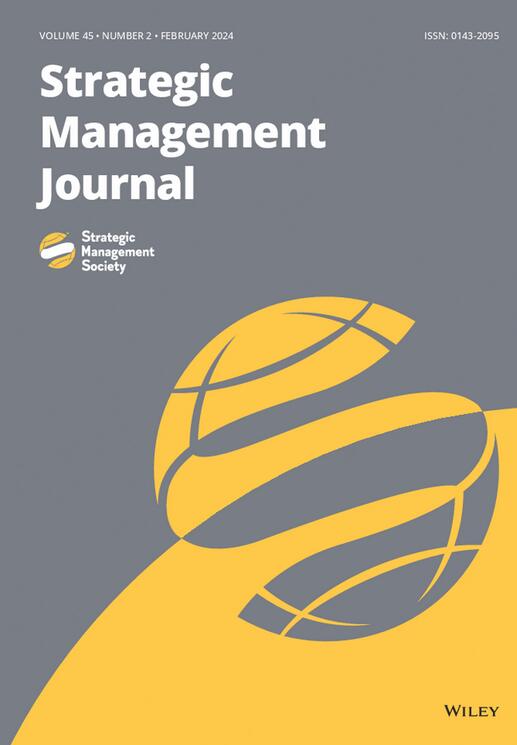政治竞争与企业贿赂转为与政治相关的慈善捐款:韩国的证据
IF 7.2
1区 管理学
Q1 BUSINESS
引用次数: 0
摘要
研究摘要我们研究了政治竞争、企业贿赂和企业对政治关联慈善机构捐款之间的关系,以及随着政治竞争的加剧,企业的非市场行为是否会从隐蔽转向隐蔽。利用韩国罕见的企业贿赂和慈善捐款面板数据进行的面板分析表明,随着政治竞争的加剧,企业贿赂会减少,而企业对与政治有关的慈善机构的捐款会增加。随后的面板分析发现,在政治竞争加剧的情况下,上一年贿赂数额较大的企业在下一年会向与政治有关联的慈善机构提供更多捐款,而且这种形式的再渠道对于规模较小的企业集团来说更为明显。本研究认为,战略领域需要加大对企业非法战略行为的分析力度,以便更深入地了解企业界的商业行为,并为政策制定者提供建议,说明如何长期遏制此类行为。本研究利用韩国关于贿赂高级政府官员和向与政治有关联的慈善机构捐款的全面而罕见的企业层面数据,分析了随着韩国政治竞争的加剧,企业如何将贿赂高级政客的行为转为向与政治有关联的慈善机构捐款。本研究提出了重新渠道理论,并利用韩国贿赂和政治关联慈善捐款的大量数据集证明了该理论的支持性。本文章由计算机程序翻译,如有差异,请以英文原文为准。
Political competition and the rechanneling of corporate bribery into politically connected charity donations: Evidence from South Korea
Research SummaryWe examine the relationship between political competition, corporate bribery, and corporate contributions to politically connected charities, and whether there is a shift from covert to concealed corporate nonmarket action as political competition increases. Panel analysis using rare corporate bribery and charity donations panel data from South Korea reveals that as political competition increases, corporate bribery decreases, whereas corporate contributions to politically connected charities increase. Subsequent panel analysis uncovers that amid increased political competition, firms that made larger bribes in the prior year contribute more to politically connected charities in the subsequent year, and that this form of rechanneling is more pronounced for smaller business groups. Implications are discussed.Managerial SummaryThis study argues that the field of strategy needs to do more to analyze firms' illegal strategic behavior, both to gain a deeper understanding of business practices in the corporate world and to develop recommendations for policymakers on how to curb such behavior over time. Using comprehensive and rare firm‐level data on bribery of high‐level government officials and donations to politically connected charities from South Korea, this study analyzes how businesses rechannel their bribery of senior‐level politicians to contributions to politically connected charities as the country's level of political competition becomes stronger. This study proposes a theory of rechanneling and demonstrates support for the theory using the extensive data set on bribery and politically connected charity donations from South Korea.
求助全文
通过发布文献求助,成功后即可免费获取论文全文。
去求助
来源期刊

Strategic Management Journal
Multiple-
CiteScore
13.70
自引率
8.40%
发文量
109
期刊介绍:
At the Strategic Management Journal, we are committed to publishing top-tier research that addresses key questions in the field of strategic management and captivates scholars in this area. Our publication welcomes manuscripts covering a wide range of topics, perspectives, and research methodologies. As a result, our editorial decisions truly embrace the diversity inherent in the field.
 求助内容:
求助内容: 应助结果提醒方式:
应助结果提醒方式:


